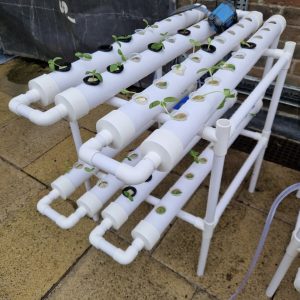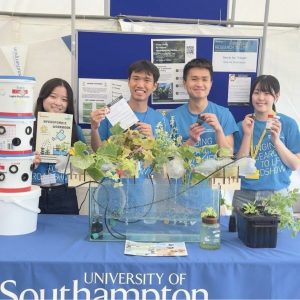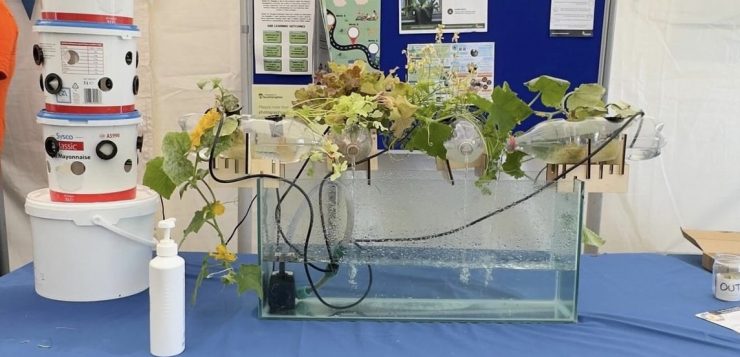Turning water into wine might be an ancient miracle… but turning water into a thriving garden? That’s a modern-day marvel, courtesy University of Southampton students.
Since 2021, Seeds For Thought has been using hydroponics, the practice of growing plants in water without soil, to promote sustainable agriculture, make teaching science more engaging, and encourage healthier eating habits in schoolchildren across Southampton.
Entirely run by 25 University of Southampton student volunteers, the group is currently hosting six-week workshops in five schools, all in deprived areas of Southampton.
These after-school workshops allow the children to get hands on and grow their very own produce, with each kit producing around four large lettuces every 16 weeks.

Astonishingly, hydroponics uses 90% less water than traditional farming techniques, which is why it is becoming increasingly indispensable in today’s burgeoning urban conflict zones, where both land and water are alarmingly scarce.
While hydroponics may provide a lifeline in conflict zones, in Southampton, a stark dichotomy emerges as it is being used to promote healthier eating in an area grappling with worrying and increasing rates of childhood obesity.
A recent study by the University of Southampton reported that ‘44.3% of children in the most deprived parts of Southampton are overweight or obese, compared to 23.8% in the least deprived areas.’
Confronting this egregious inequality is at the heart of Seeds For Thought’s mission.
More cynical readers might question whether four lettuces every 16 weeks is enough to tackle childhood obesity, akin to trying to quench a forest fire with a water pistol.
In response, Samuel Inkster, a second-year environmental science student and the project lead for Seeds For Thought (who has recently been nominated for the Green Gown Student Sustainability Champion Award), argues that:
‘The key to tackling childhood obesity is education’
After all, you give a man a fish…
Seeds For Thought aims not only to encourage children to consider what is on their plate, but also to reflect on how it arrived there.
This focus on sustainability is what recently propelled the team to the finals of the United Nations Sustainable Development Solutions Network Competition— an incredible achievement, as they were one of only five finalists and the only European representative.
It has been estimated that as high as one-third of the world’s greenhouse emissions can be contributed to agriculture. Hydroponics, however, produces half the CO2 of traditional methods of agriculture.
Tejal Harihar, Seeds For Thought’s Head of Marketing, emphasises this environmental benefit:
‘Reducing CO2 is at the core of what we’re trying to accomplish; that being said, it’s more than just lowering emissions. Hydroponics also reduces the need for cross-continental produce transportation by allowing communities to grow their own food locally.’
‘By introducing children to hydroponics, we are not only teaching them how to grow food but also demonstrating how sustainable solutions can lower carbon footprints throughout the food supply chain.’
Nonetheless, it’s not all sunshine and succulent salads. Traditionally, one of the biggest drawbacks of hydroponics is the significant upfront cost needed to get a system up and running. Which is not ideal when you are targeting deprived areas.
From the outset, Seeds For Thought aimed to confront this challenge by adopting a Robin Hood model. In practice, this means utilising proceeds from independent sales and courses at private schools to fund their programmes in more deprived areas, ensuring that all children have equal access to the benefits of sustainable agriculture.

So, what’s next for Seeds For Thought?
As a completely volunteer-run group, they are constantly seeking to recruit new members to expand the number of schools that they can reach.
In the more distant future, Sam spoke of his desire to branch out to both Portsmouth and Bournemouth, envisioning a network of interconnected hydroponic gardens flourishing across the Solent.
To turn this vision into reality, Seeds For Thought needs volunteers. Your skills can make a difference. If you’re interested in getting involved, please reach out to seedsforthoughtsoton@gmail.com.
When asked if everyone should have a hydroponic kit in their home, Sam unambiguously and decisively replied.
Absolutely.





